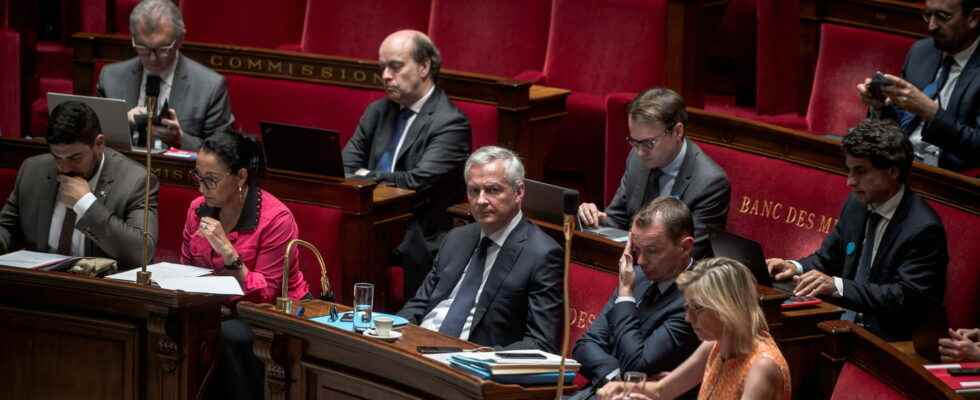PURCHASING POWER LAW 2022. On the night of Thursday July 21 to Friday July 22, the deputies adopted the purchasing power bill at first reading. Here is what it contains.
[Mis à jour le 22 juillet 2022 à 20h26] After several days of intense debate, the National Assembly voted on Friday, July 22, on the purchasing power bill, which presents “emergency” measures. The deputies finally reached an agreement for this project carried by President Emmanuel Macron and the Prime Minister, Élisabeth Borne. The text was adopted by the various political groups with 341 votes for, 21 abstentions and 116 votes against, Friday morning. The text will be examined by the Senate Finance Committee from Monday, July 25, 2022. Here is what the purchasing power bill adopted at first reading contains:
- The ceiling of the Macron bonus is tripled: this “value sharing bonus”, paid by the employer to the employee on a voluntary basis, was until now capped at 1,000 euros and could reach 3,000 euros. In addition, companies that have signed a profit-sharing agreement and companies with fewer than 50 employees could see the bonus ceiling drop from 2,000 to 6,000 euros. The payment of this bonus by companies may be split over the year. Finally, an employer who has already paid a bonus of 2,000 euros at the start of 2022 will be able to give a second between August 1 and December 31. Thus, an employee will be able to receive up to 8,000 euros of Macron bonus in 2022.
- Increase in social benefits: social allowances and social minima are increased from July 1, 2022. Thus, the active solidarity income (RSA) increases by 4%, the housing allowance by 3.5% (PLA) and the solidarity allowance for the elderly of 4% (Aspa).
- Increase in pensions: retirement pensions will increase by 4% from the July 1, 2022, after an initial automatic revaluation of 1.1% in January. Supplementary pensions, which are managed by the social partners, are not affected by this increase. They should still benefit from a revaluation in October 2022.
- Deconjugalization of the AAH: the deconjugalization of the AAH, the allowance for disabled adults, was voted on Wednesday evening in the National Assembly. The payment of this aid will no longer be calculated according to the income of the couple, but only from the income of the person with a disability. Of the 1.2 million beneficiaries, this represents 270,000 people in couples. Deconjugalization should be implemented as of October 1, 2023.
The purchasing power bill was a government campaign promise before the legislative elections. He finally arrived only on Thursday July 7 in Council of Ministers. His examination in the National Assembly began on July 18. The text, dense and rich in controversial points, was the subject of long heated debates, interruptions and various invectives from the different groups. However, the National Assembly voted, shortly before 6 a.m., friday july 22, the text of the purchasing power bill in first reading. This text including some 80 amendments will be examined in Finance Committee, Monday, July 25, 2022 in the Senate.
The amount of the civil service index point has been completely frozen since 2017. Indeed, for more than five years, no general increase in the remuneration of public officials has taken place. Only a few categorical increases have been implemented by Emmanuel Macron since his election as President of the Republic in 2017. But, as of this year, the civil service index point will experience a further increase of 4% from the 1st July. In reality, this increase will only be visible from August, with retroactive effect from July 1. The various unions were demanding an increase of between 3% and 20%.
